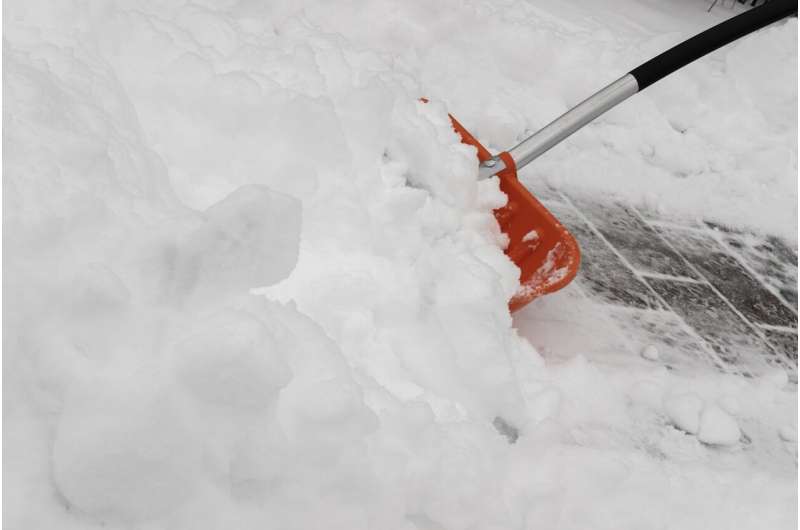Credit: Pixabay/CC0 Public Domain
Last year's heavy snow season has many people thinking about what Mother Nature has in store this year. To stay healthy this holiday season and beyond, Mayo Clinic Health System is recommending people pace themselves while clearing snow.
"Many people don't realize the workout involved while shoveling and digging out from a heavy snowfall," says Vinayak Nagaraja, M.D., interventional cardiologist at Mayo Clinic. "It's an arduous activity that puts extra strain on your heart, and for those with heart disease, we recommend having someone else clear the snow altogether."
The cardiovascular stressors of shoveling are both physiological and psychological.
The physiological stressors include your blood vessels constricting from being out in the cold, which increases blood pressure. In people with underlying conditions, this alone can lead to chest pain.
"The psychological part has to do with the mental stress of being out in the bitter cold and being determined to keep going and keep shoveling even though you're exhausted," says Dr. Nagaraja.
If you have a history of heart problems and are physically inactive, it's best to consult with your health care team before starting heavy exercise like shoveling. In addition, don't shovel while smoking, eating or right after consuming caffeine since this may place extra stress on your heart.
Here are a few other tips to consider:
- Drink plenty of water.
- Remaining hydrated during cold-weather months is just as important as during warm-weather months. Drink water or electrolyte drinks before, during and after your shoveling session, even if you're not thirsty.
- Shovel snow while it's fresh.
- Freshly fallen snow is lighter than snow that has started melting or has been moved by a plow.
- Take it slow.
- Pace yourself and take breaks if you need to. Safety is more important than speed.
- Listen to your body.
- This is the No. 1 snow-shoveling tip. If something doesn't feel normal or you're tired, it's time to stop. Go inside, warm up, rest and drink water, tea or coffee. Reevaluate how your body feels before picking up where you left off.
- Have your phone handy. If you're experiencing an emergency, call 911 immediately.
2023 Mayo Clinic News Network. Distributed by Tribune Content Agency, LLC.
























